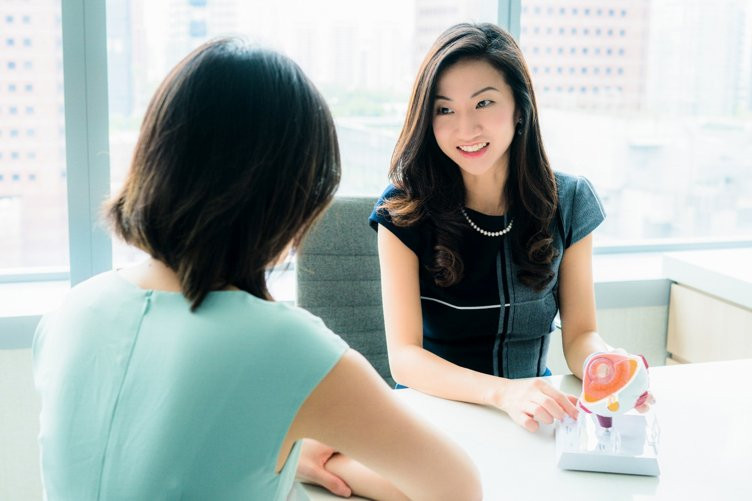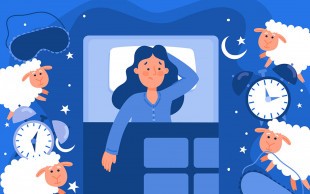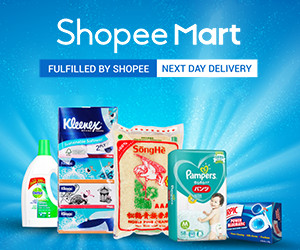Asia Retina Eye Surgery Centre, with the expertise of its founder Dr Claudine Pang, has recently launched a mobile app aimed at improving eye health education in Singapore by allowing the public to easily test the health of their eyes.
With over 15 years of experience as an ophthalmologist, Dr Pang has developed this mobile app to help improve consumer education in eye health as well as provide an easy way in which the public can access trusted eye health information and home tests.
Free to download and use, the Asia Retina mobile app provides the public with easy access to clinically proven eye exams. These include tests for visual acuity, colour blindness, macular grid test and a dry eye quiz.
We speak to Dr Claudine Pang about what sparked the genesis of her mobile app and what she aspires to achieve with it.
Why did you choose to study medicine in NUS and specialise in Ophthalmology?
I’ve always been more of a people person. I am passionate about listening to people, and ‘fixing’ their problems. I knew from a young age that I wanted to be able to make a tangible difference in peoples’ lives.
Being a doctor really allows me to treat people and get them well from illnesses relatively quickly.
Ophthalmology is one of the few fields in medicine where you can see dramatic improvements very quickly. For example, many of my patients with cataracts can go from being blind to having perfect vision the next day, after having their cataract surgery done.
Seeing my patients recover so rapidly is most rewarding and what motivates me daily.

What inspired you to build the Asia Retina mobile app and what do you hope to achieve with it?
Throughout my 15 years of practice, what disturbed me the most was having many patients see their doctors without truly understanding their own eye condition.
Many patients step out of a consultation room without any record of their eye test results and even more don’t remember what the doctor said during the consultation.
I thought it would be useful to have an app that could store each patient’s personal profile including their eye test results and images, so that patients could view their eye records and diagnosis easily.
This would be useful for subsequent visits and allow patients to monitor the progress of their own eye condition.
I also thought an app that could alert and remind patients to use their required eye drops at the correct frequency would be useful to those patients who tend to forget. This improved patient compliance and disease control especially in conditions such as glaucoma and post-cataract surgery.
Lastly, I wanted the app to be freely accessible to the public so that users could conduct simple self-assessment eye test which detect problems in visual acuity, colour vision, macular function and dry eye symptoms.
I hope that these self-screening tests, together with eye-related articles that are published regularly on the app, would serve to increase public awareness and education about eye health.
Why do you think there is a lack of awareness and education around eye health in Singapore? What can be done about this?
There is a general lack of awareness that yearly eye check-ups are required to pick up early eye diseases and that many eye conditions could have no symptoms in the early stages.
Singapore has one of the highest rates of myopia in the world and yet it is relatively unknown to many that myopia could lead to many eye problems including retinal tears, retinal detachment, macular degeneration, cataract and glaucoma.
Personally, I feel that doctors can increase awareness by conducting more public talks and writing more articles to disseminate eye health-related information to the public.

Why is innovation and technology in the eye health industry so important?
The eye is actually a very difficult organ to look into because we only have access through a small pupil. Moreover, our eye consists mainly of microscopic structures including our photoreceptors in the retina which are critical in vision.
Technology allows us to achieve more precise evaluation of these eye structures that we would otherwise not have been able to do as easily; while innovation empowers us with cutting-edge treatments to improve patient recovery and quality of life.
What are your hobbies?
I like being active with my children so I enjoy running family marathons, rock climbing and pilates. I also like baking because I enjoy creating pretty pastries for my loved ones.
Most of all, I love travelling with my family for a good cause; for example, this year I’ve brought my kids to Siem Reap, Cambodia twice where we were able to build a playground, wells and toilets for a local school, provide water filtration systems, food, clothes, stationary and shoes for the local schoolchildren and conduct eye screening for the schoolchildren.
During these trips, we get to explore the country, learn about their culture and contribute to their community all at the same time.
What is one quote you live by?
“People may forget what you said, they may forget what you did, but they never forget the way you made them feel.” I always strive to treat my patients so that they feel that they’re well taken care of.
How has your journey as a doctor-preneur been? What are some of the highs and lows?
Being a new business, there are always bottom-line issues to worry about, so that’s a downer.
However, being my own boss allows me to make decisions like bringing the whole team on purpose overseas holiday trips for mission work as well as investing in the most innovative eye equipment and solutions such as our Asia Retina App.
Although these do not contribute to company revenue, I feel it’s just as important as it enhances our team spirit and our patients’ overall experience.
What is your advice for future doctor-preneurs?
Always remember your passion towards your patients when you first chose to be a doctor and never let the worries of entrepreneur-ing get the better of your doctor-ing!

















